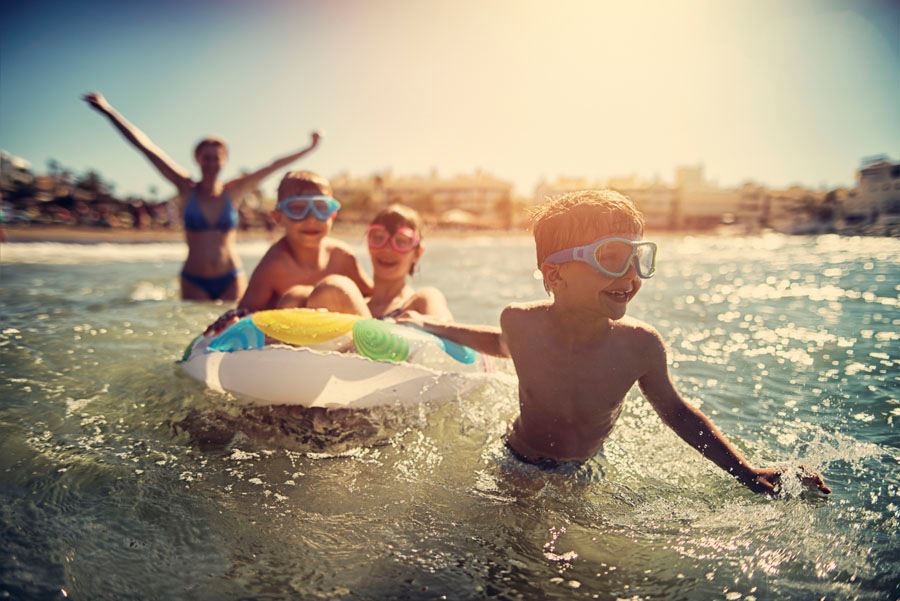What is PVC?
PVC (polyvinyl chloride), or vinyl as it is also called, is one of the most commonly used plastic materials. It is usually made from sodium chloride (salt) and oil or natural gas.
PVC can have many different properties depending on the substances added to the plastic, which makes PVC a plastic with many uses. PVC is used, for example, in pipes, windows, cables, floors, food packaging, dialysis and blood bags, toys, shoes, rainwear, inflatable bath toys, and much more.

What is less good about PVC?
Mercury cell technology, which is still used in some plants outside Europe, is a significant source of environmental pollution. In the significantly better technology (membrane method), there is a risk of emissions of per- and polyfluorinated organic substances (PFAS).
Plasticizers, used in soft PVC for up to 60%, are not bound to the polymer. They can leach out and be a source of harmful chemicals for humans and the environment. Today, new plasticizers are being developed to replace the phthalates, which have raised concerns due to their reproductive and endocrine disrupting effects.
Not all Nordic countries allow the incineration of used PVC. Denmark has a waste legislation that states that all PVC must be sorted for recycling. If, for example, the material cannot be recycled due to additives, it must be deposited. Therefore, Nordic Ecolabelling is looking at the possibilities of requiring recycling/take-back systems for specific product groups.
What does the Nordic Swan Ecolabel think of PVC?
In general, the Nordic Swan Ecolabel prohibits or strongly restricts PVC in products where there are better environmental alternatives that fulfil the same function or in ordinary packaging because the waste management systems do not sort PVC for recycling. The Nordic Swan Ecolabel prohibits PVC in disposable bags, hoses and accessories for medical use, textiles, toys, flooring and packaging for liquid foods. The Nordic Swan Ecolabel allows rigid PVC in windows and exterior doors, but then a proportion of the PVC material must be recycled and show low levels of lead and cadmium in the recycled raw material.